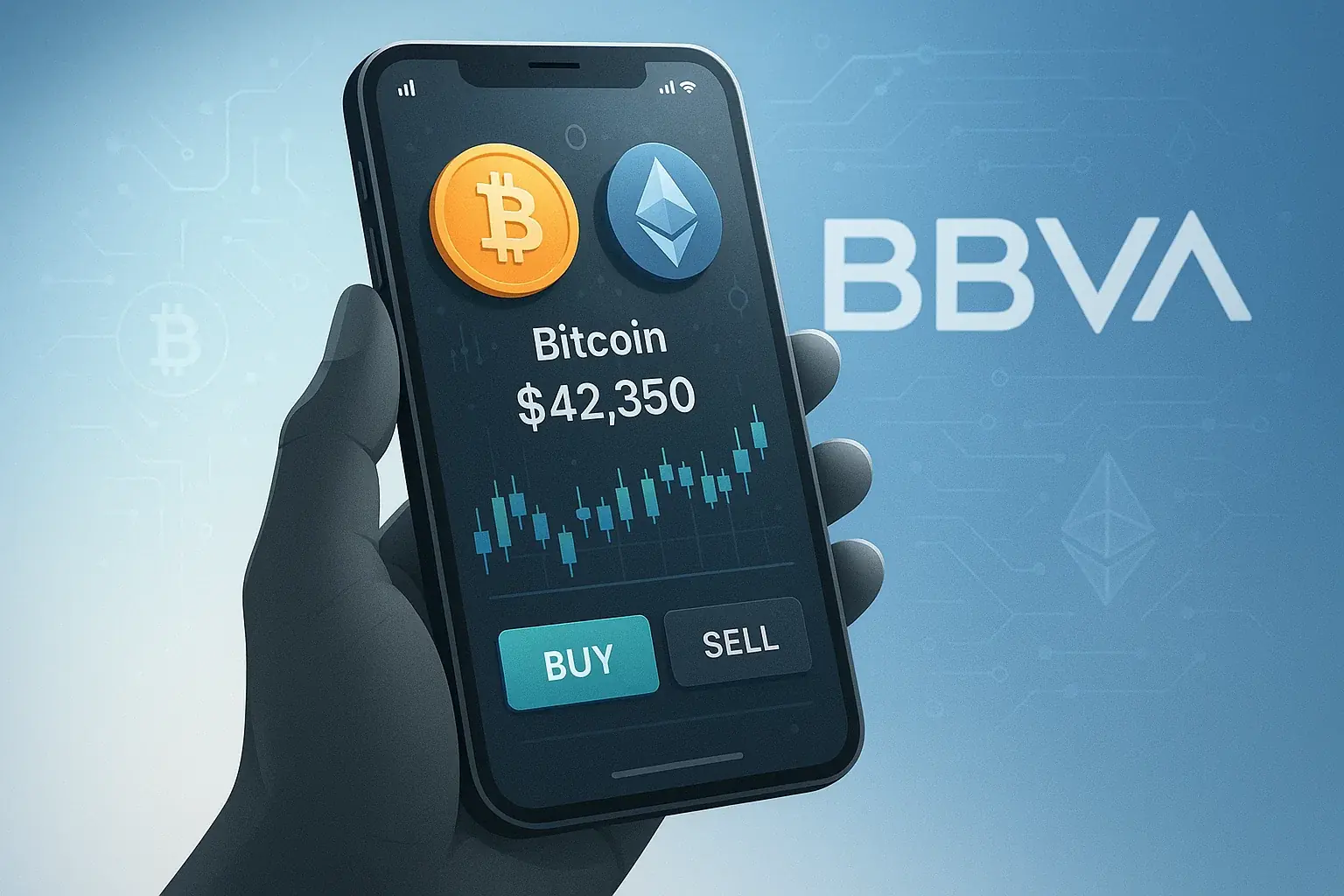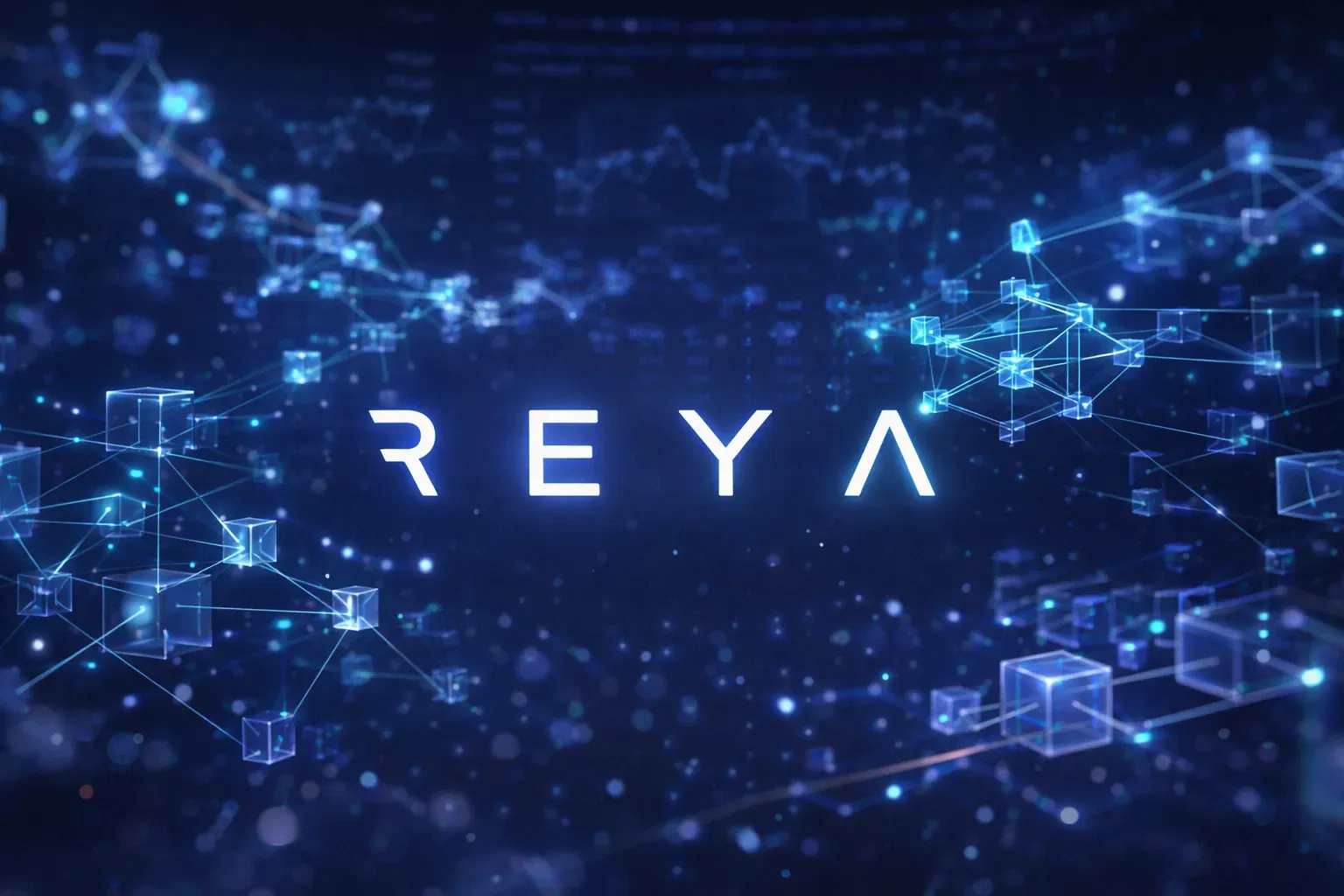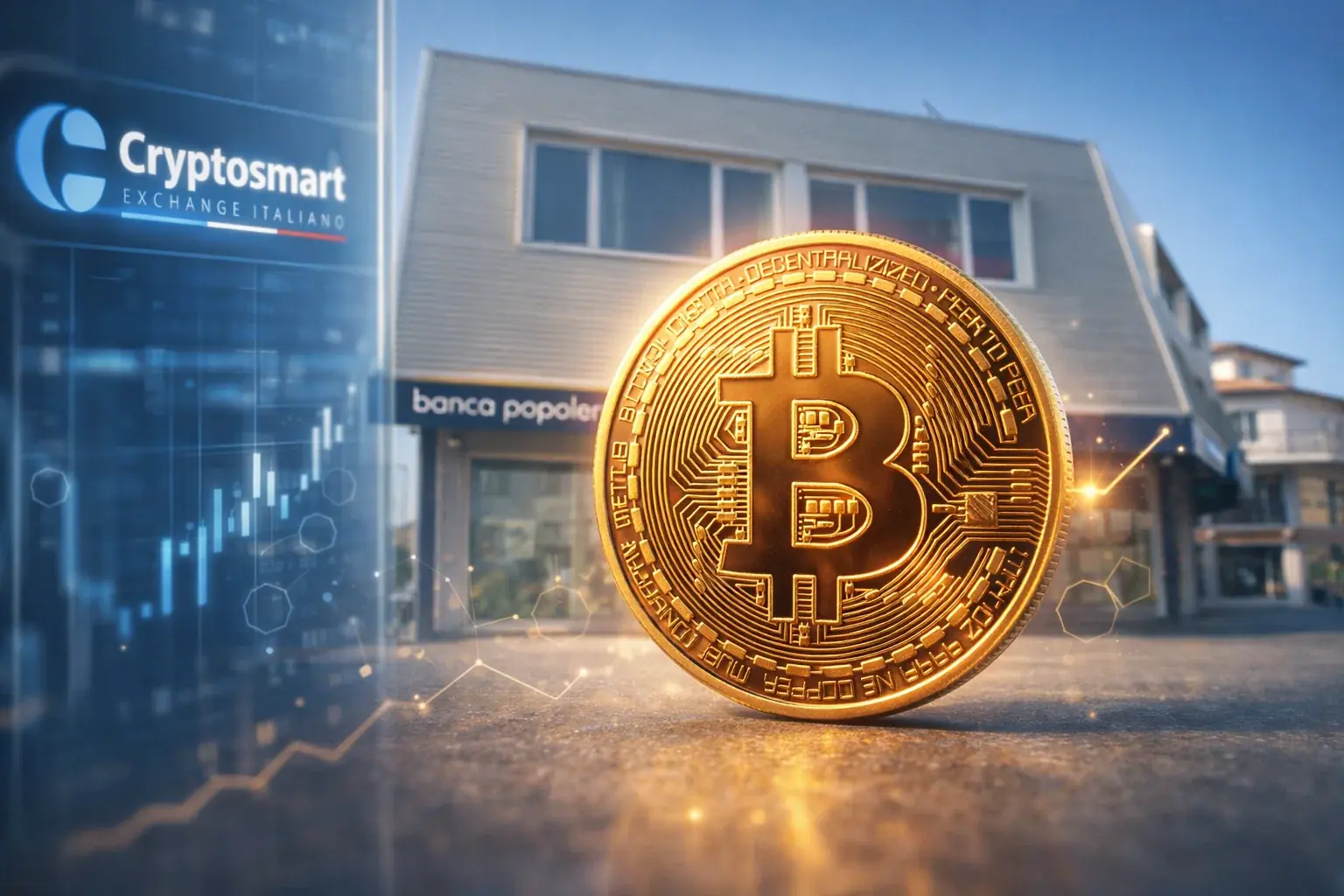Spanish banking giant BBVA has opened up access to trading and custody of cryptocurrencies Bitcoin and Ethereum for all adult customers in Spain. This was made possible after approval by the Spanish regulator CNMV in March 2025. Since the official announcement on 4 July, the bank has been gradually introducing the functionality in the mobile app.
🏦 BBVA opens crypto trading in Spain 📈@@BBVA will now allow its customers in Spain to buy and sell Bitcoin and Ethereum, reinforcing its commitment to digital assets.https://t.co/ExD82o438X
- Crypto economy (EN) (@CryptoEconomyEN) July 4, 2025
How BBVA's Crypto Service Works
BBBVA's customers can buy, sell and store BTC and ETH themselves directly via the bank's app. All transactions take place within the existing banking infrastructure, without the involvement of external platforms or third-party custody providers. This means a high degree of security and protection of funds thanks to banking standards, including the protection of private keys through our proprietary storage technologies.
As Gonzalo Rodriguez, head of BBVA's retail business in Spain, pointed out:
"We want to make it easier for customers to invest in crypto assets through a convenient, fully digital mobile solution backed by the bank's reliability."
The launch is being carried out in full compliance with the European MiCA (Markets in Crypto-Assets) regulation, which sets out the rules for the provision of services in the area of digital assets, including custody and trading.
The infrastructure has been developed based on BBVA's experience in other countries. Thus, from 2021, the bank will provide similar services to its private clients in Switzerland, subsequently including Ethereum and the USDC stablecoin. In 2023, Garanti BBVA's subsidiary BBVA launched digital assets in Turkey - Bitcoin, Ethereum, USDC, Solana, XRP, AVAX and Chiliz.
The launch in Spain makes BBVA the first major bank in the country to offer a ready-to-use solution to retail customers interested in cryptocurrencies. According to sources, access will initially be limited to a pilot group, before being gradually extended to all users in the coming months.
Beyond this, BBVA's recommendation to participate in crypto assets for high net worth individuals is worth noting. In Switzerland, the bank recommended allocating up to 7 per cent of the portfolio for a private investor, depending on the risk profile. Executives emphasise that even as little as 3% in cryptocurrencies can bring diversification and additional profitability without excessive risk.
Interest in cryptocurrencies is growing across the EU: in the eurozone, penetration rates already exceed 30% and it is predicted that by 2026 there will be around 268 million crypto users. At the same time, MiCA has created a clear regulatory framework that has allowed banks like BBVA to confidently develop the digital asset sector.
In the coming months, BBVA may expand the range of crypto assets: USDC is already available in Switzerland and dozens of altcoins are available in Turkey. In a conversation with Finextra, representatives of the bank emphasised that they intend to introduce new digital instruments - tokenized bonds, funds and stablecoins.
At the same time, it is expected that other Spanish banks - Santander, Caixabank - will follow BBVA's example and offer their own crypto services under the European regulated umbrella of MiCA.
BBVA, thus confirming its role as an innovator, is paving the way for the integration of digital assets into mainstream banking products. This could mark the beginning of a new era of access to cryptocurrencies for a wide range of European users.








